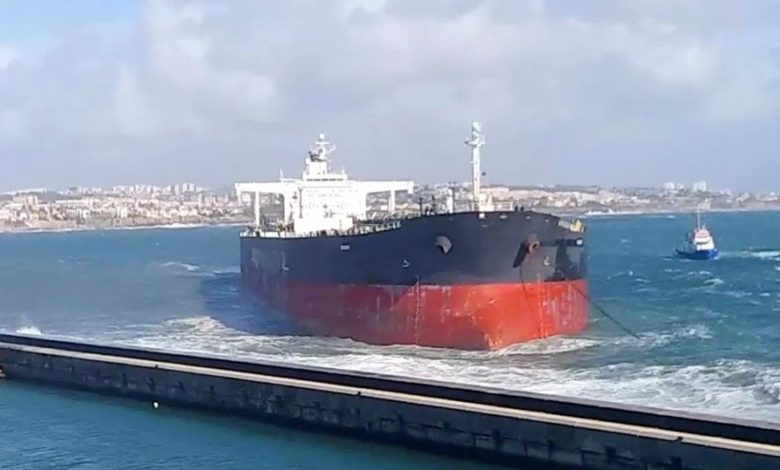North P&I urges owners to test crews to avoid accidents

In citing human error as the leading reason for ship accidents a P&I Club has suggested owners carry out continued evaluations of their crews.
North P&I Club is encouraging its shipowner members to consider the crew evaluation and benchmarking service offered by Seagull Maritime through an exclusive partnership between the two organisations.
Over the next 12 months any North shipowner member wishing to assess its existing and potential crew members – whether directly employed or supplied via manning agents – can use Seagull’s online crew evaluation system (CES) and associated benchmarking tool for a 25% discount on the standard $4,000 fee.
According to North’s deputy loss prevention director Colin Gillespie, North’s root cause analysis of major claims identified issues with officer quality and safety culture to be present in the majority of incidents.
“Quality issues are a problem in an employment market characterised by officer shortages but in which shipowners must meet minimum manning standards. This can result in low quality officers who, in a more balanced supply and demand situation may struggle to find work, continuing to circulate in the market. These officers can be both ineffective in their work and potentially unsafe. Through our Right Crew initiative we are encouraging our members to find and keep quality seafarers – as well as to identify those who are not,” Gillespie said.
“Seafarer knowledge assessment and benchmarking is an important tool to highlight knowledge gaps,” Gillespie added.
CES tests, which can be taken anywhere on a standard PC, are based on over 5,000 multiple-choice questions on knowledge areas in the International Convention on Standards of Training, Certification and Watchkeeping for Seafarers (STCW). Test results are recorded and benchmarked against the CES global database of over 700,000 tests carried out since 2010.
Seagull reports that 8% of qualified seafarers scored less than 40%.
‘Low levels of knowledge can be a potential danger to the ship, the crew and to the individual themselves. Where low levels of knowledge are identified they must be addressed. This may be through training programs,’ Gillespie concluded.

A case of old wine in old bottles? While I will not be one to suggest that some seafarers’ skills and knowledge may need upgrading, reassessing etc, the constant focus on “human error,” and behaviour based approaches will not do. Those in charge continue to ignore the elephant in the room – minimum manning levels, commercial pressures and other structures of vulnerability in the seafarers’ work environment – how much can an industry try to fix the seafarer when the other structures remain the same? Space does not allow me to go into details here, but there are many things to be considered, which I am sure those who will read this are aware of. Until the autonomous vessel becomes a reality, let us take better care of our seafarers instead of the constant blaming and trying to fix them.
I fully agree
It’s rare to read so much bullshit from so high paid officials…..it never stops to amaze me.
I agree with the comments posted by Carolyn Graham and by Kirt-Preben Nielsen.
Let us translate the Press release:
“Seagull have got the North of England P&I Club to do some marketing for them, with added patronising of seafarers”
The North of England have shown themselves to be hopelessly out of touch, and quite wonderfully arrogant.
How would their own staff react if some “expert” suddenly demanded that they all take a multiple choice test on P&I insurance? Would they be motivated to try harder? Or would they be feeling insulted and demotivated?
Now, let’s get down basics.
If a ship owner or manager needs to use any of these tools – be it Seagull’s or one of their rivals – to evaluate the abilities of the people they have in post, their whole manning department should be sacked immediately, for gross incompetence.
Where these tools have a use is in two areas – firstly, as an aid to interviewing recruits, and secondly as a means to specifically assess what additional training may be needed as part of a competence assurance system.
As I have said before, the ship owner’s training budget fits Lord lever’s much quoted remark about his advertising budget – ” I know that half of it is wasted, but I don’t know which half”
Making people sit through a training session on stuff they already know is a waste of money and insulting and demotivating to the audience. Find out the gaps in knowledge, then plug those specific gaps.
But subjecting people to a generic test is just an admission of incompetence in the manning department.
It’s appalling that all accidents are blamed on seafarers. Anyone who has attempted CES , will agree that it ask most of unrelevent questions .
Reduced manning , too much record keeping and duplication of it , lots of paper work . Leaves senior officer with little time for actual job . Lots of control like vdr data analysis and humiliating s masters on its basic , demotivated them . Add number of inspection where seafarers are treated like criminal! No shore leave , strict alcohol policy , And last big ego of shore staff. Poorly written manual and reprimand for deviating from it . Well all is not well on shore staff and regulars
i totally disagree with some of the comments. training and work ethics is the key to maritime safety.multiple choice is not simply that but a method of phychological evaluation .the sequence and content are the closest method we can manage to decice on the objective of good seamanship.